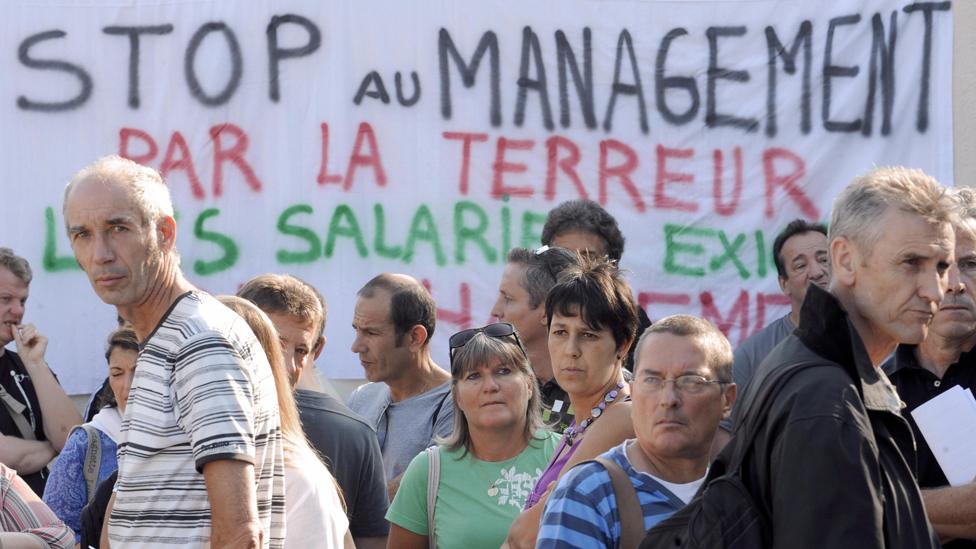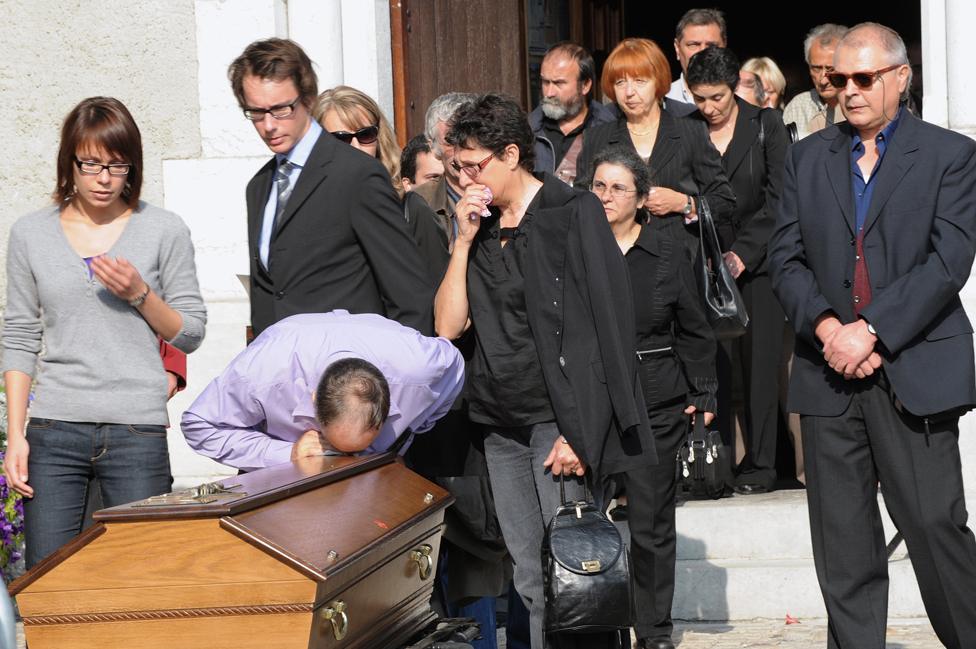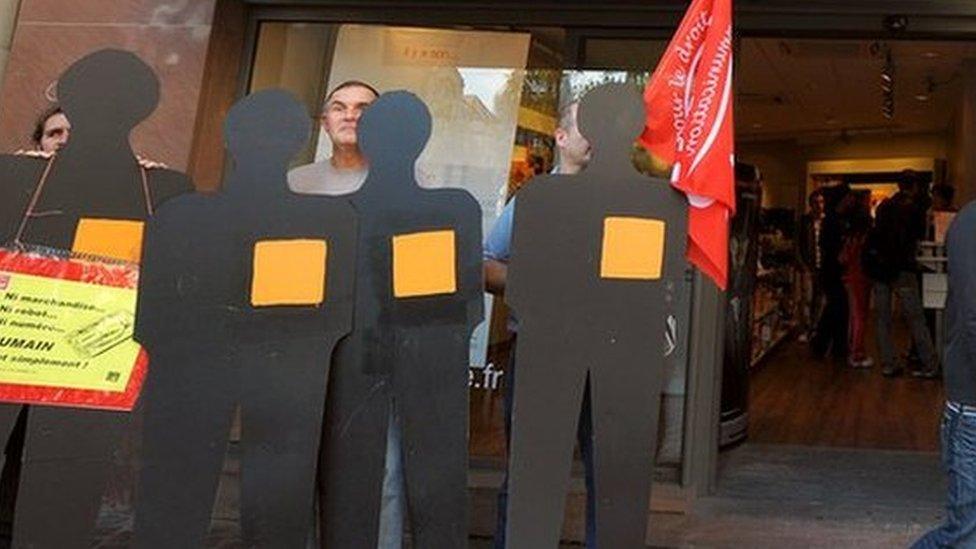France Télécom bullying trial sheds light on spate of suicides
- Published

Didier Lombard resigned as chief executive in 2010
A landmark trial of corporate responsibility has ended, with telecoms operator Orange - formerly France Télécom - accused of "moral harassment" leading to a wave of suicides in the 2000s.
The prosecution has asked for the maximum sentences: a fine of €75,000 (£67,000) for France Télécom and a year's imprisonment for three top former executives. The verdict is expected on 20 December.
It has been a long and arduous two-and-a-half months, emotionally taxing both for the accused and for those who came to give evidence against them.
The court heard heart-rending testimony from families of those who died.
In all, the cases of 19 suicides were included by the prosecution, along with 20 others who claim to have suffered as victims of managerial abuse.

France Télécom workers protest, Marseille 2009: "Stop management-by-terror" says the banner
The management plan was to cut about 22,000 jobs out of France Télécom's 130,000 total, to ensure the firm's survival.
'France Télécom is responsible for my suicide'
Each story had to be told in detail - like that of Rémy Louvradoux, a 56-year-old France Télécom worker, who died by setting fire to himself outside his office in April 2011.
His daughter, Noémie, said he became "the char stain on the wall" at the France Télécom building in the south-western town of Mérignac.
"My father's death meant [management's] objective had been achieved."
Or of Michel Deparis, who killed himself in 2009, leaving a letter in which he said: "What led to this is my job. France Télécom is responsible for my suicide."

Mérignac, April 2011: A black stain on the wall (bottom right) shows where a worker set himself on fire
The court heard from psychologists and sociologists, and experts in suffering in the workplace.
And it heard from the senior managers who allegedly masterminded the policy of "moral harassment", cynically designed, said the prosecution, to get people who couldn't be pushed out of the company to jump of their own accord.

Three top managers who could face jail
Former chief executive Didier Lombard
Former deputy chief executive Louis-Pierre Wenes
Former head of human resources Olivier Barberot
Four other executives were also in the dock.

Job cuts 'by the window or the door'
The trial heard of two projects - in classic management-speak called NExT and ACT - which were drawn up in 2006.
The first was a plan to restructure France Télécom as it adapted to competition in the private sector. NExT referred in English to "New Experience in Telecom services".
The second was the social "accompaniment" for 22,000 job cuts. ACT stood in French for "anticipation and skills for transformation".
The court heard of an infamous speech to senior managers in Paris, when France Télécom's then chief executive Didier Lombard - now in the dock - said: "We must be quite clear that we cannot protect everyone. In 2007 I will have these job cuts one way or another. By the window or by the door."
The judges know they will be rendering a verdict which could have enormous implications for the future conduct of major businesses.
An unprecedented case
Back in the mid-2000s, France Télécom was in the throes of a monumental economic and cultural change.
Privatised by the government, it was having to adapt to the novelty of competition as well as a dizzying pace of technological change.
Staff who had been employed in the 1980s and 1990s, expecting a long career doing a conventional job in a state monopoly, found themselves struggling in a new world of call centres and cost control.

Vieugy, October 2009: Relatives mourn a France Télécom worker who took his life
Complicating the situation further was that most of these workers were taken on as state employees, so their jobs were protected.
They couldn't be made to leave, so management decided they had to be encouraged. And in the end France Télécom became Orange and survived and thrived.
That is the context for this unprecedented trial, the first ever of a company for "moral harassment".
The prosecution says the top executives deliberately created conditions which they knew would push some employees over the edge.
The defence says it is the kind of charge that is impossible to prove.
Each case is unquestionably a human drama - and no-one in court has for one instant claimed the suffering of France Télécom workers was not genuine.
But establishing a chain of responsibility from suicide victim to senior manager - that would be a major step in jurisprudence.
- Published6 May 2019

- Published7 July 2016
